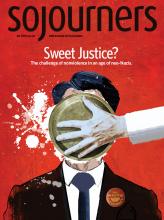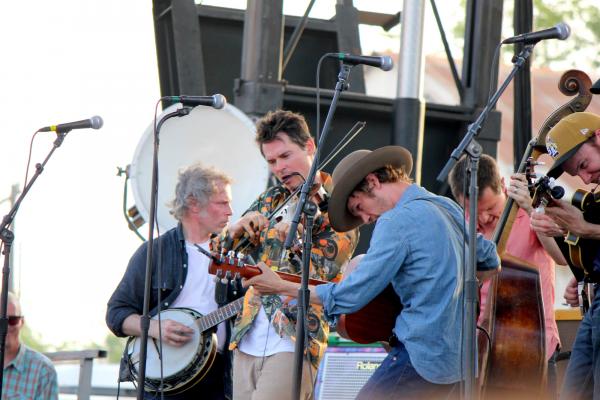TWENTY YEARS ago, Old Crow Medicine Show, the 21st century old-time string band, began as a gigantic all-or-nothing bet on the viability of American traditions long left for dead. The kind of bet that only foolish young people could make. In 1998, fiddling frontman Ketch Secor, freshly rejected by his high school girlfriend, gathered a band of like-minded pickers and took off from upstate New York on an epic transcontinental busk-a-thon. One guy in the van was Critter Fuqua, Secor’s best friend from their school days in Harrisonburg, Va. The rest were neo-folk enthusiasts from the rural Northeast.
For the next few months, the newly named Old Crow Medicine Show pulled into towns that were barely on the map, stood in front of a centrally located store, and turned loose a blaze of ancient American music, fueled by punk-rock energy and abandon. The people came and cheered, and enough money fell into the banjo case to keep the gas tank full. The latter-day pioneers never went to sleep hungry, and they came back to the East convinced that they were onto something real and life-changing.
Read the Full Article

